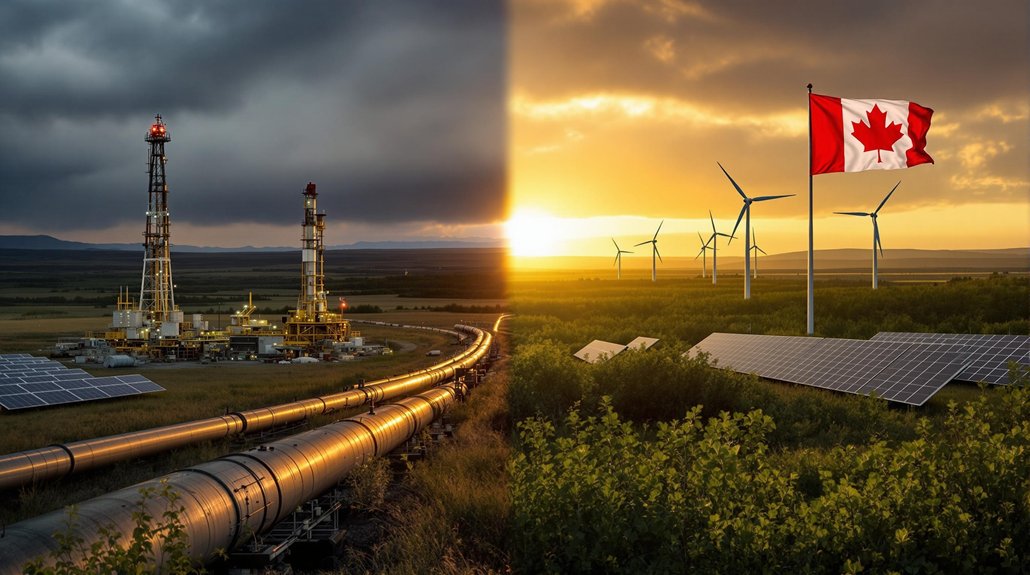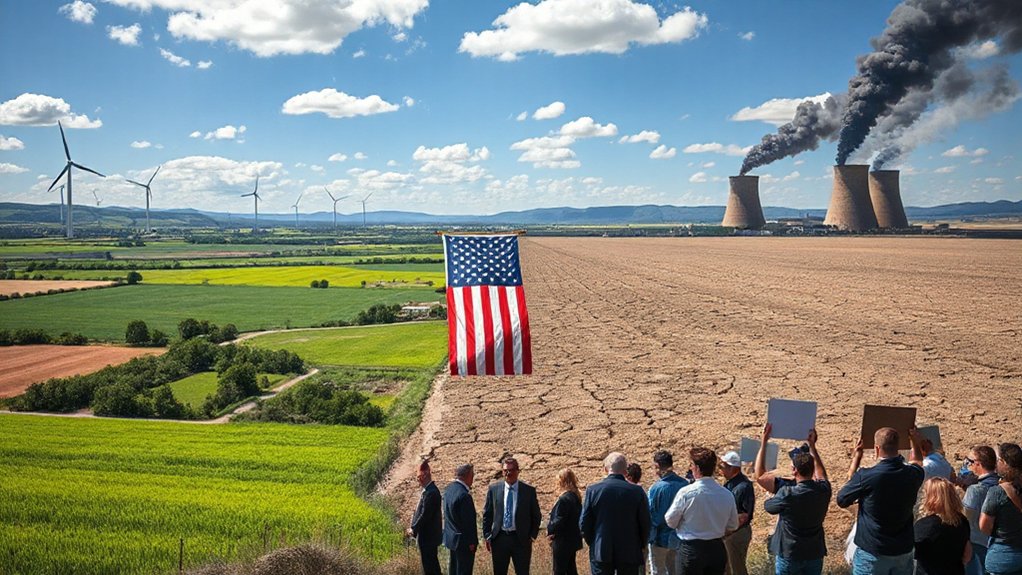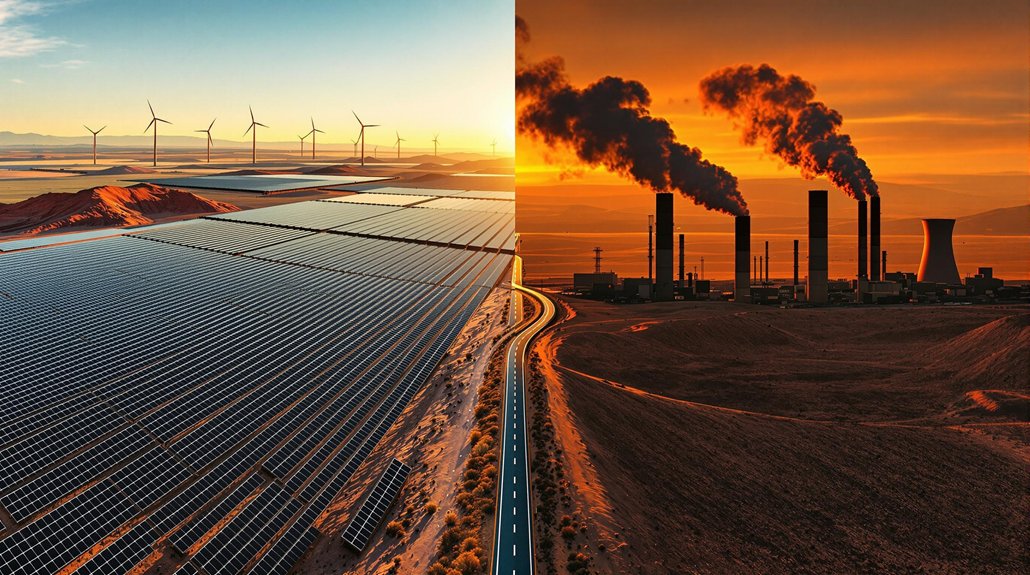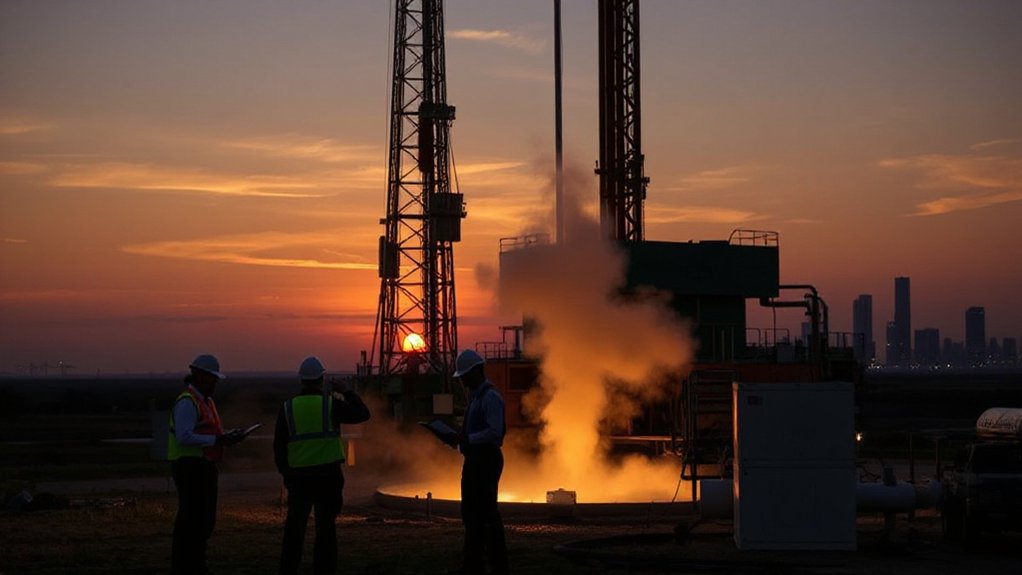Canada’s major political parties are shifting away from climate priorities ahead of the 2025 election. Both Conservative and Liberal frontrunners now emphasize fossil fuel expansion and economic concerns, with the Liberals surprisingly ending the consumer carbon price. This retreat from climate leadership comes despite polls showing 67% of Canadians want climate action prioritized. Smaller parties like the NDP and Greens maintain stronger environmental positions as the climate discussion takes a backseat. The implications could be far-reaching.
Why have Canada’s leading political parties shifted away from climate action despite public concern? As the 2025 election approaches, both Conservative and Liberal parties have moved climate issues to the back burner, despite polls showing 67% of Canadians want the next government to make climate action a high priority.
The Conservative Party has centered its platform on ending the consumer carbon price, effectively moving away from climate initiatives. Party leadership actively promotes new fossil fuel infrastructure as essential to Canada’s economic and security interests. They’ve also avoided responding to environmental organizations‘ questions about their plans to address fossil fuel pollution. This stance ignores the reality that the fossil fuel industry contributes 75% of global carbon emissions over the last two decades.
Conservative leadership champions fossil fuel expansion while dodging questions on pollution reduction plans.
Similarly, the Liberal government surprised many by ending the consumer carbon price ahead of the election. This move signals a retreat from their previous climate leadership position. When asked about fossil fuel pollution reduction by environmental groups, the Liberals provided incomplete commitments.
Public opinion seems at odds with both parties’ approaches. A March 2025 Leger survey found 65% of Canadians support investing in renewable energy over new fossil fuel development. Additionally, 62% believe Canada should maintain its climate commitments regardless of U.S. actions. Voters can better understand party positions by watching leaders’ debates to gain insights on their environmental platforms.
Despite these numbers, only 5% of voters list climate among their top two election issues. Economic concerns like tariffs and affordability now dominate campaign discussions, pushing climate concerns aside. Conservative Leader Pierre Poilievre has notably refused to commit to meeting Paris Agreement targets while focusing on his “technology not taxes” approach.
Smaller parties like the NDP, Bloc Québécois, and Green Party have offered more detailed plans for reducing fossil fuel dependence. The NDP proposes tightening the 2035 emissions reduction target by 5%, but they aren’t leading in the polls.
Media coverage reflects this shift, with climate change regularly ranking fourth or fifth in importance during campaign discussions. For the two frontrunners, ambitious fossil fuel restrictions or new climate commitments have been largely absent from their main campaigns, despite ongoing public worry about climate change’s long-term impacts.









